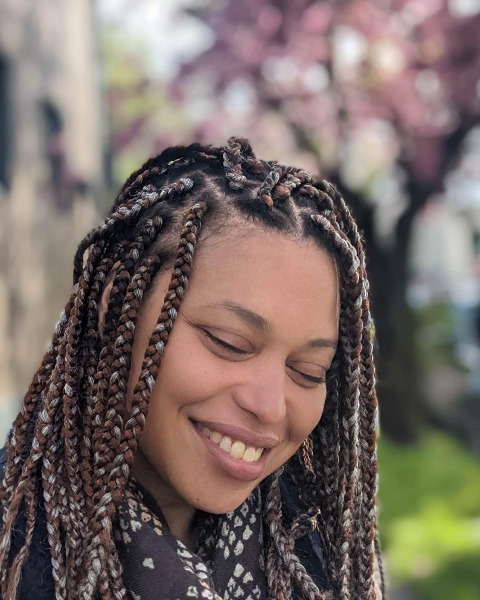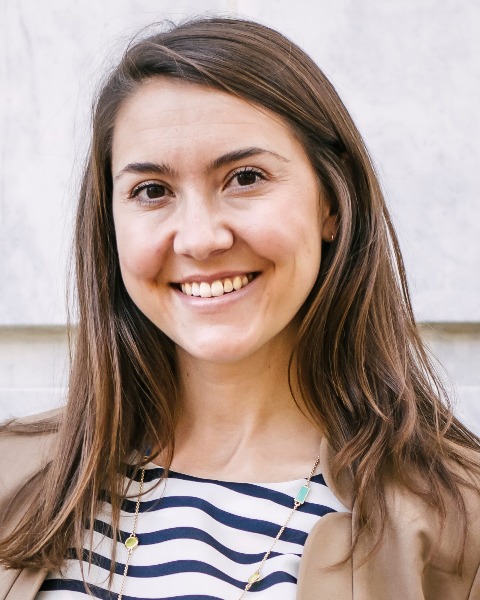Feminist Issues in Evaluation
Protagonists, not perpetual protégés: Evaluators at the intersections writing ourselves into existence
-
AL
Albertina Lopez, PhD
Senior Associate
Center for Evaluation Innovation, United States -

Crystallee Crain, PhD (she/her/hers)
Strategist - Capacity Building Consultant - Human Rights Scholar
The Everly Collective, Prevention at the Intersections, Nonprofit Network, United States -

Kathleen Doll, PhD (she/her/hers)
Partner & COO
Intention 2 Impact
Irvine, California, United States -
KK
Keiko Kuji-Shikatani, PhD, Credentialed Evaluator
Canadian Evaluation Society Fellow
CES Credentialing Board, Ontario, Canada -
LS
Libby Smith, MS
Senior Advisor
Viable Insights, United States -
NB
Nicky Bowman, PhD
President
Bowman Performance Consulting, United States -
VS
Veronica Smith, n/a
Lead Executive & Equitable Scientist
data2insight, United States -

Crystallee Crain, PhD (she/her/hers)
Strategist - Capacity Building Consultant - Human Rights Scholar
The Everly Collective, Prevention at the Intersections, Nonprofit Network, United States
Presenter(s)
Facilitator(s)
Presenter(s)
Facilitator(s)
Presenter(s)
Location: Room 105
Abstract Information: This session writes the unfinished story about an ongoing journey that started in 2020 among a multi-racial group of kwe/womanist/gender+/femme/feminist folx who reject reductionist binaries and engage in evaluation. We seek to co-create an alternative, democratic publication process and product–an edited volume on intersectionality and evaluation–that disrupts, subverts, and transforms harmful and exclusionary patterns within evaluation and academic publishing. This session is part of our effort to mobilize all segments of evaluation’s ecosystem in changing whose knowledge/ ways of knowing are published, funded, and believed. We invite siblings on similar journeys to join us in sharing stories about their personal, professional, and political experiences with knowledge production: Shape the proposed volume’s theme, grounding principles, and next steps!
Relevance Statement: In 2019, three Feminist Issues in Evaluation (FIE) TIG members decided to curate an NDE volume on intersectionality. Despite intersectionality’s origination in Critical Race Theory, Black Feminist Thought, and the experience of women subjugated along the confluence of many dimensions of oppression, the FIE TIG convened an entirely white editorial team. It also developed a process rooted in hierarchy: the all-white team hand-picked individuals from various groups to submit abstracts for their review. Protest by some hand-picked individuals against the composition of the editorial team and the hierarchical process led two editors to start over. They issued an open call in early 2020 for interested folx to collectively develop a more democratic and egalitarian process rooted in crip, anti-capitalist, indigenous, anti-imperialist, anti-racist, anti-caste, LGBTQIA+, and feminist principles. The resulting Feminist Evaluation Regenerative Network (FERN) has since met monthly and nurtured several ideas among members. Some FERN members decided to resurrect the effort to publish a journal volume on intersectionality. This group has met regularly since January 2021. This proposed think-tank is part of its journey to replace the FIE TIG’s original process—which was grounded in white settler culture—with a more liberatory process that reflects understanding that evaluation’s overwhelming whiteness is not a “natural” result of black/brown/indigenous groups lacking the necessary education, experience, or worldview. Rather, it is artificially (re)produced. Specifically, in the late 1960s, the precursor to what is now AEA explicitly chose an opaque name—The May 12 Group—so that “no one will be able to argue that they were entitled to join" (The Oral History Project Team, 2005; p. 381). It created, expanded, and deepened relationships among a small community of evaluation scholar-practitioners in higher education who were entirely white, even though African Americans had studied with many of the field’s (white) founders, earned doctorates, published in scholarly journals, and been practicing evaluation as early as the 1930s (Hood, 2001). The May 12 Group members exchanged publishing, contract, and employment ideas, citations and opportunities. They received support from white peers in government agencies, philanthropic foundations, academic publishers, large research/evaluation firms, and nonprofits. Thirty years later, in the early 2000s, in an explicit effort to avoid race-specific language, AEA’s board chose the vague discourse of “diversity & inclusion” rather than the analytically specific language of intersectionality, which had been coined a decade prior and conceptualized centuries earlier. That’s why evaluation is so white, demographically, ideologically, and epistemologically. Undoing—reversing, repairing, redressing, and regenerating from—evaluation’s exclusion and harm will require similarly concerted, coordinated collusion among these same actors within evaluation’s ecosystem. Undoing means breaking with the dominant/dominating culture of academic publishing, and evaluation, to navigate unfamiliar waters. It means questioning assumptions to make room for both ancestral and emergent thinking, including generative conflict. We invite attendees from excluded and harmed groups, very specifically, to draw from their knowledge and ways of knowing to co-create an accessible and democratic process through which we can collectively shape the way the world thinks and talks about social problems and social change.
